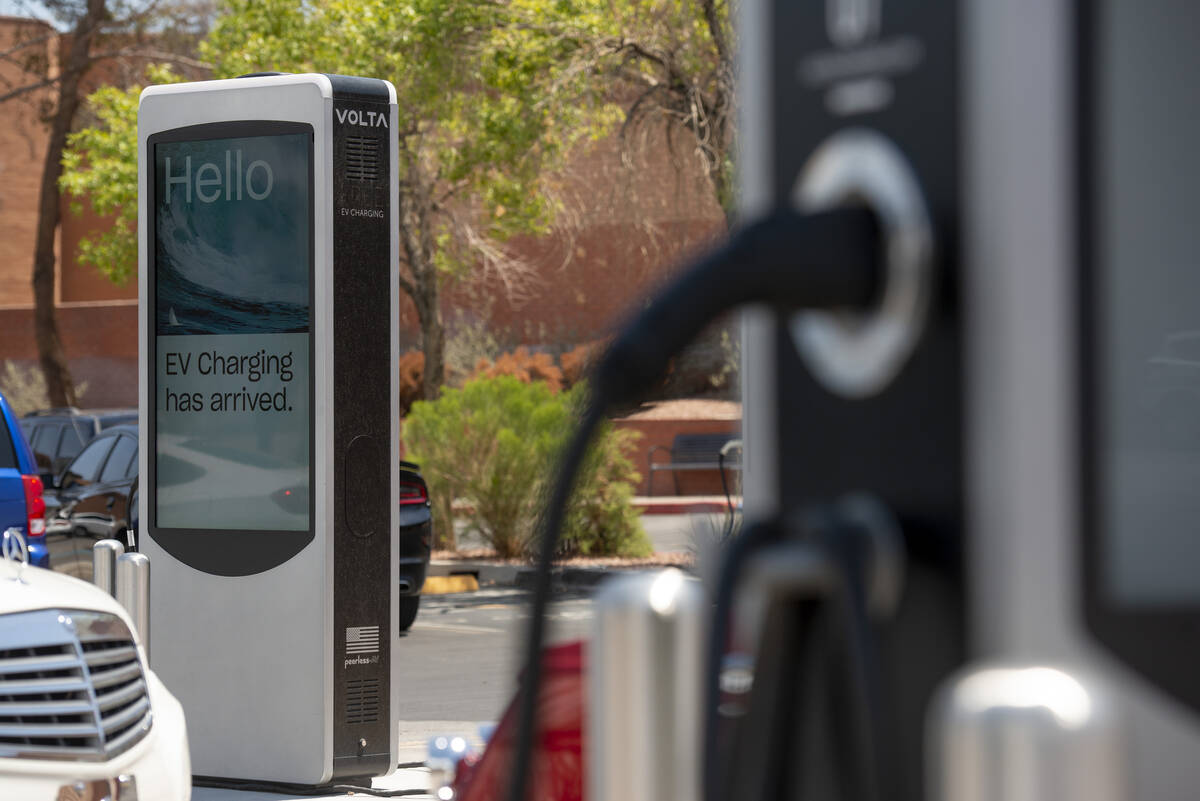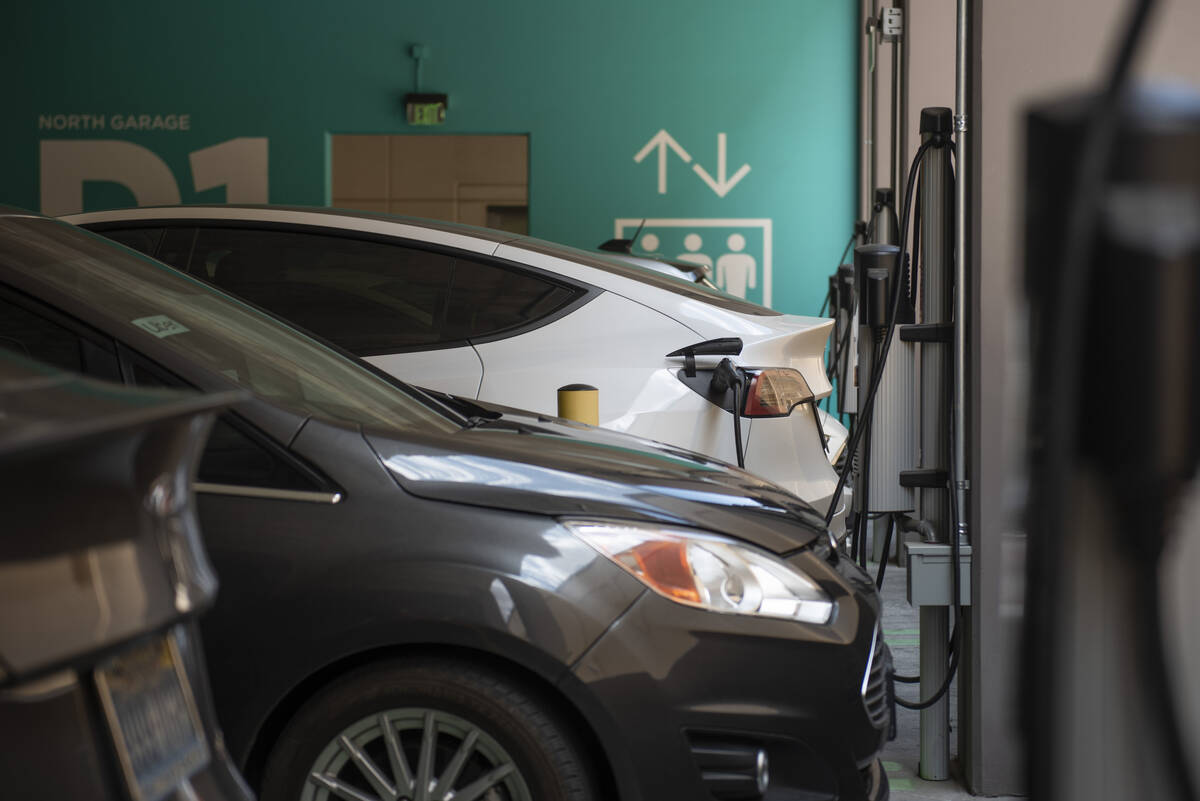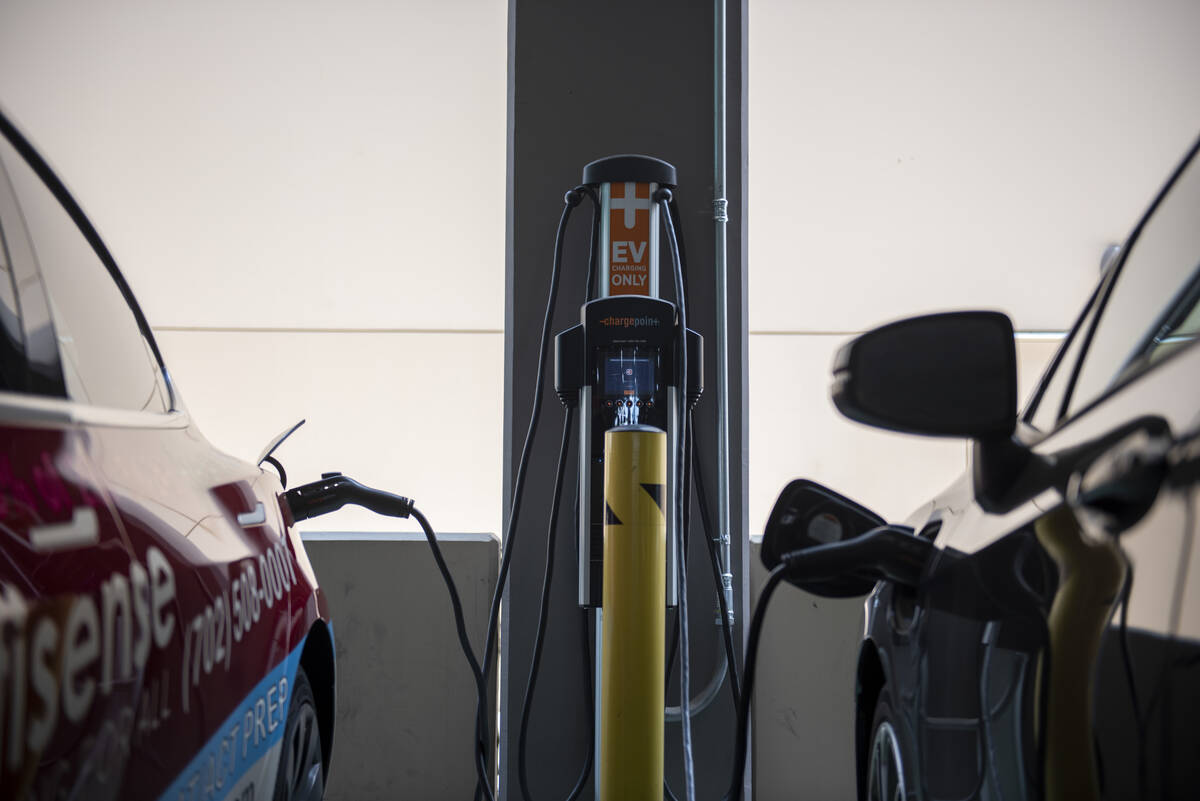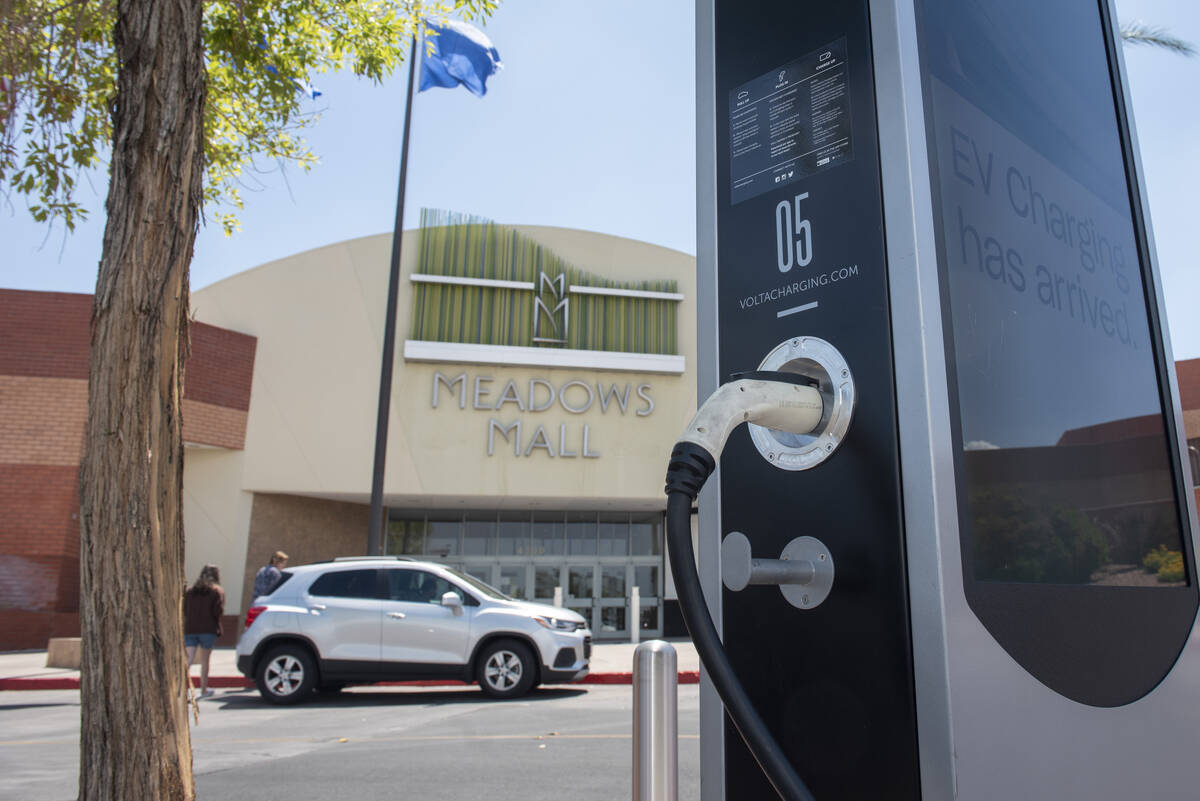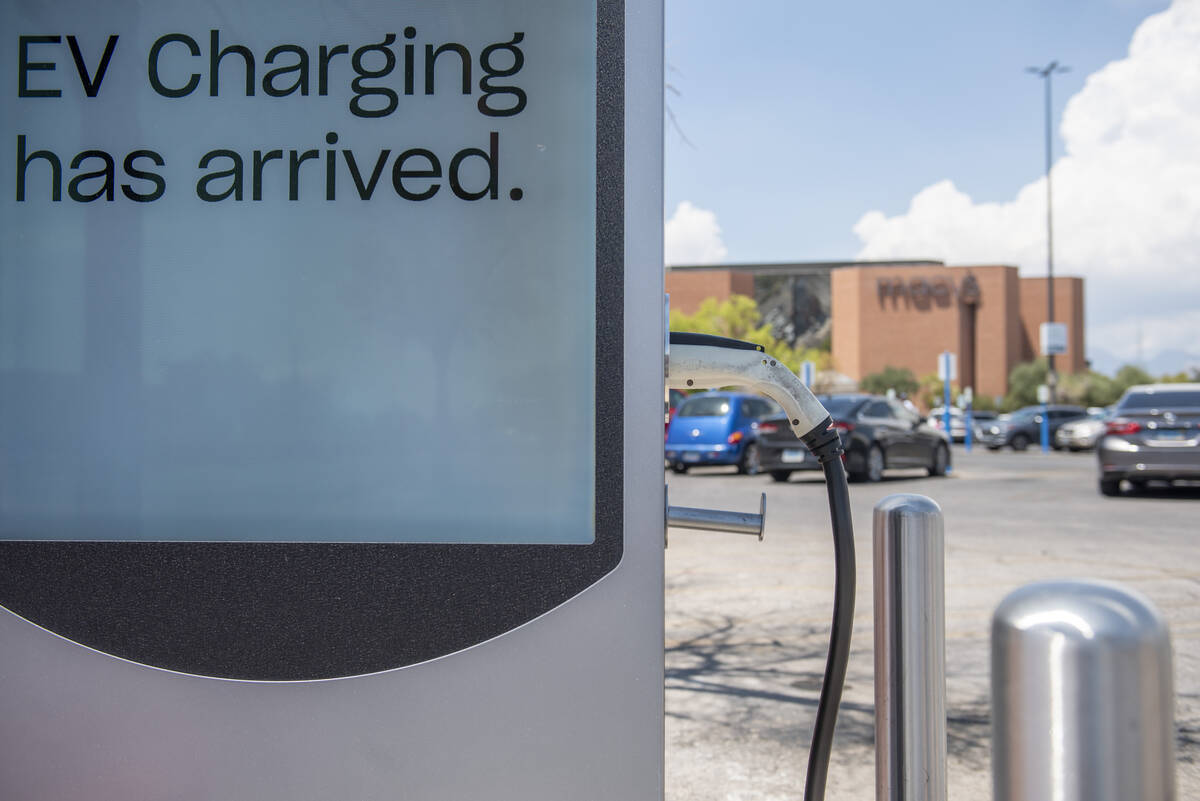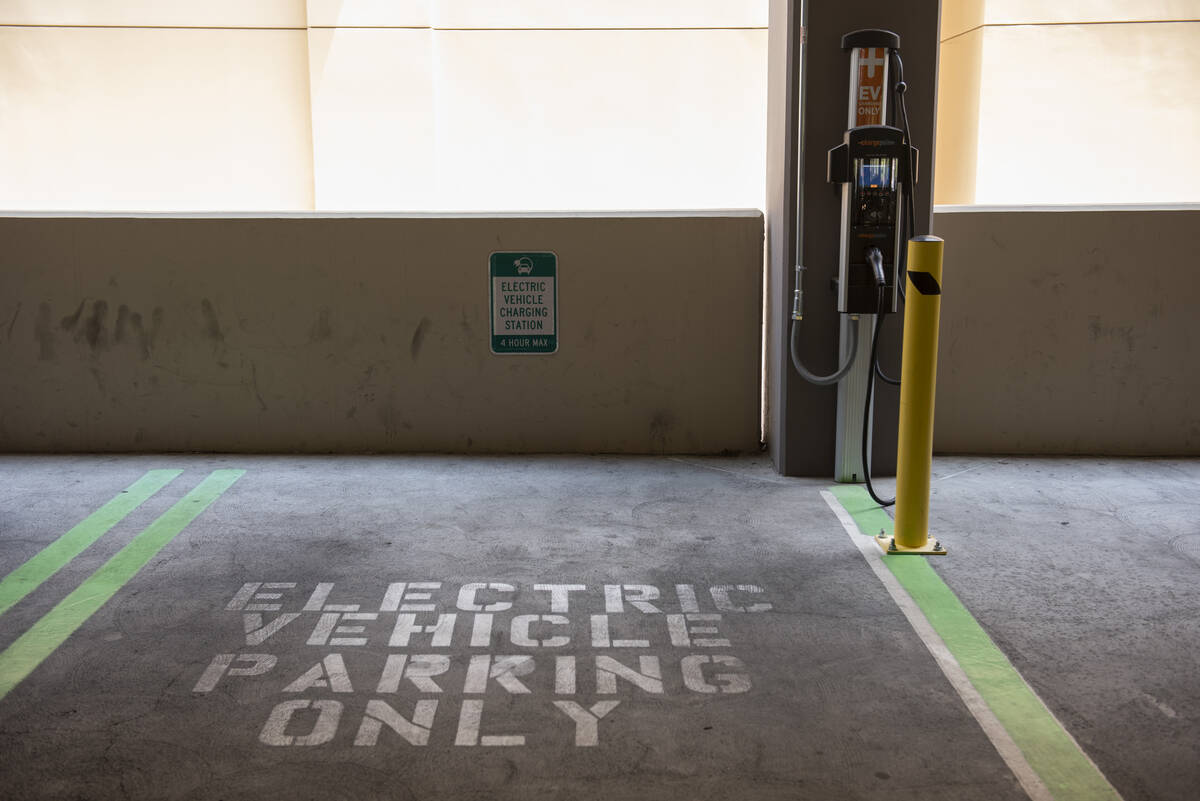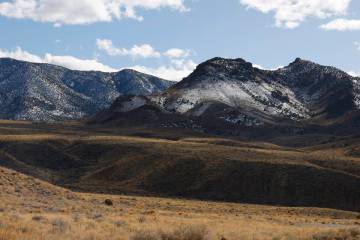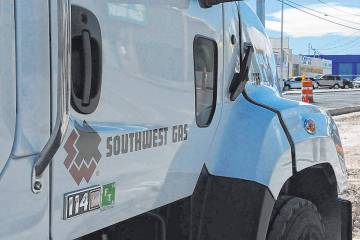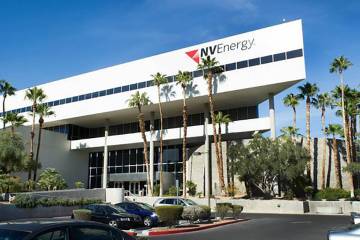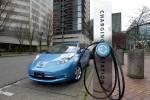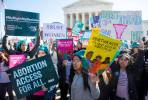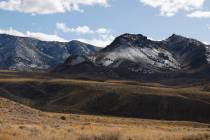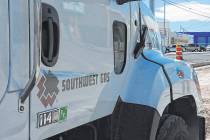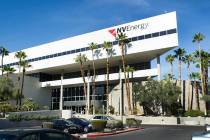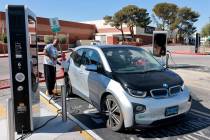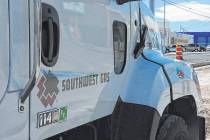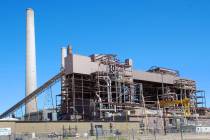Officials plan to bolster EV charging network throughout Nevada
Nevada has big plans in the works to enhance electric vehicle charging infrastructure with multimillion-dollar investments on the way.
Gov. Steve Sisolak announced that the state applied for $38 million in federal funds over the next five years to enhance the charging network for electric vehicles in Nevada. The application is subject to federal review and needs approval from the U.S. Joint Office of Energy and Transportation.
“The future of transportation is electric, and I’m proud to see Nevada’s public agencies and private sector working collaboratively to develop a comprehensive plan that will leverage every dollar to build out a statewide EV network that will be a model for the rest of the nation,” Sisolak said in a Monday statement.
The initial focus of the plan, developed by the Nevada Department of Transportation, is to build out the charging station networks within 50 miles of each other primarily along the interstate highways that include Interstate 15, Interstate 80, Interstate 11, Interstate 215 and Interstate 515.
Expanding the access to charging stations will be vital since EV ownership has grown in recent years. In Nevada the total share of EVs among all vehicles is expected to nearly quadruple by 2032, as the current percentage of EVs — 2 percent — is expected to rise to 7.4 percent in the next decade.
Adding charging stations is key for EV ownership to grow, said Marie Steele, vice president of electrification and energy services at NV Energy.
“From surveying people, one of the main barriers to EV cars is infrastructure so adding more charging options is a priority,” she said.
Rural needs
This initial funding and focus on major highways is aimed at addressing the biggest portion of the state’s population with some 88.6 percent of the state’s 3.1 million residents living in Clark and Washoe counties.
One major challenge in the EV plan is to provide enough charging stations for the state’s rural areas compared with urban areas.
The main focus of building out charging stations is on Nevada interstates, but once those are added, the state would want to turn its focus to the smaller highways, according to the deployment plan. The smaller highways — including U.S. Routes 50, 95, 93 and 395 — would need charging stations in order for the EV charging infrastructure to get “fully built out.”
The Nevada Rural Electric Association sees this investment in charging stations as crucial for rural areas, where residents often must travel longer distances to reach services.
“Rural deployment of electric vehicle charging infrastructure is critical to support Nevada’s long-term economic development and electrification goals,” said Carolyn Turner, executive director of NREA.
Nevada has set high electrification goals. State officials said they hope to have 50 percent of electricity generated by renewable resources by 2030 and zero net carbon emissions by 2050. Helping electrify transportation will be key to reaching those goals because 36 percent of the state’s total greenhouse gas emissions comes from transportation, one of the largest shares of the state’s emission totals, according to the 2021 Status of Energy Report.
NV Energy role
An additional $100 million will be invested through the state Economy Recovery Transportation Electrification Plan that calls for adding more than 1,000 EV charging stations from 2022 to 2024.
The state plan was created in the 2021 omnibus energy bill, Senate Bill 448, which directed a electric utility to implement a program to help electrify transportation. The $100 million in costs for the plan will be recovered by NV Energy through rate charges, according to Jennifer Schuricht, NV Energy director of corporate communications.
Nevada currently has more than 1,100 charging stations, according to PlugShare, a company that shares information meant to accelerate EV adoption. The Las Vegas area has the state’s largest share of charging stations with just over 800 charging stations.
The investor-owned utility company is handling the funds within the ERTEP. The program is getting off the ground, Schuricht said, and is taking applications from businesses until Aug. 15 for its first round of EV charging stations.
NV Energy has received plenty of interest from the business community about the program, Steele noted.
The initial round of applications will choose 27 sites for EV charging stations, with 22 in urban locations and five along interstates, Schuricht said.
NV Energy will invest millions for these EV sites through 2024 by spending just under $9.4 million for stations along the interstates and about $26.3 million for stations in urban areas, according to Schuricht. Sites need to meet certain criteria to get help from NV Energy, including having locations in public spaces that can be accessed 24/7 and near amenities such as food and shopping options, according to Steele. These funds will be used as incentives for businesses to build EV charging stations.
Although NV Energy is choosing the host sites for these charging stations, the businesses that own the sites will choose how they operate and can contract the handling of the sites to another entity, according to Steele. The sites can also choose to charge for access to these charging stations.
Acknowledging that this initial round of applications is small, Schuricht noted that NV Energy plans to unveil a broader and more ambitious plan for electrifying transportation with ERTEP funds on Sept. 1.
A previous version of this story incorrectly reported the financial assistance incentives NV Energy offers to businesses.
Contact Sean Hemmersmeier at shemmersmeier@reviewjournal.com. Follow @seanhemmers34 on Twitter.



